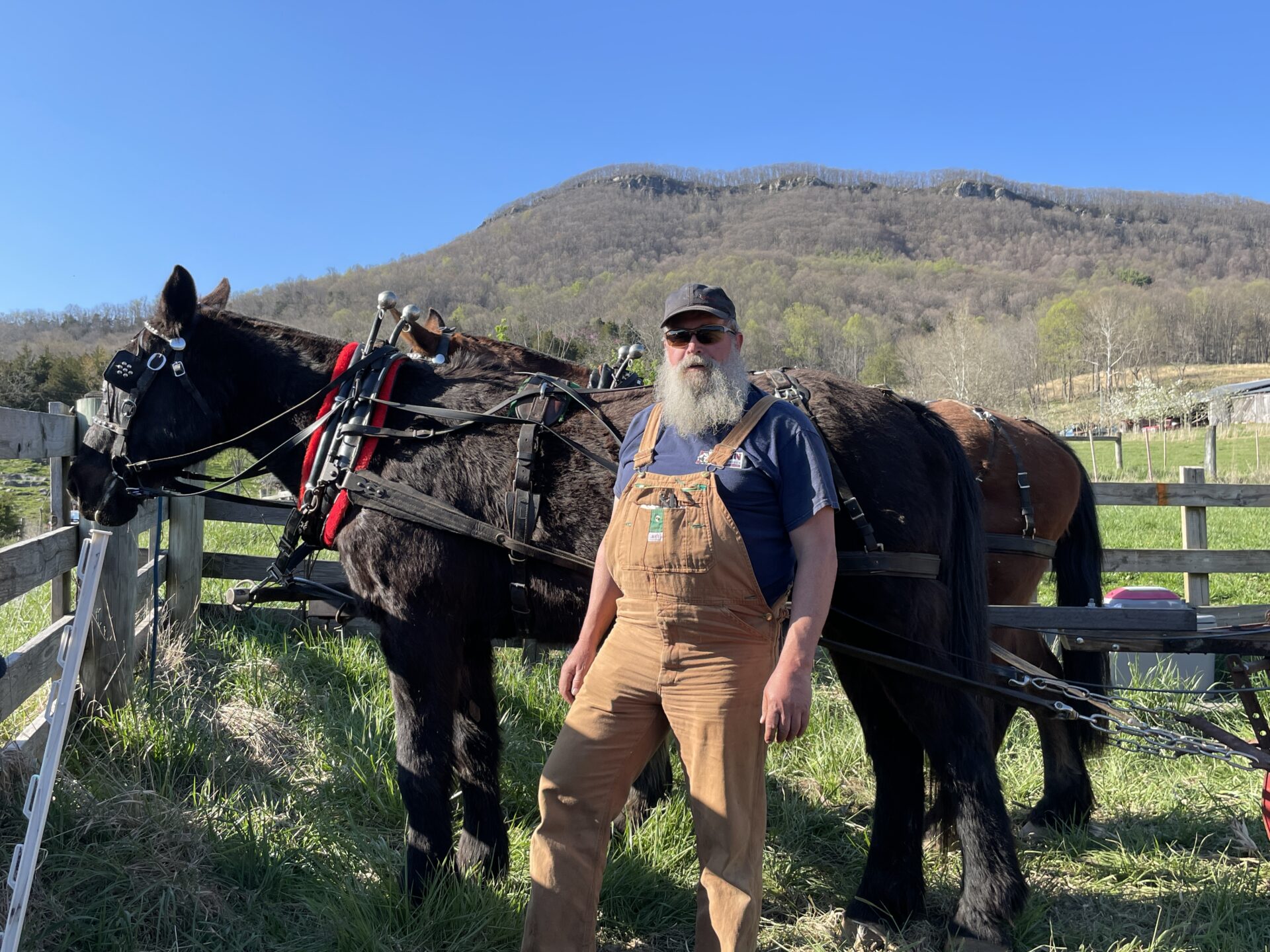A few people still farm the way folks did before tractors. We visit with farmers who still rely on real workhorses to get their work done.
Also, Kentucky artist Lacy Hale’s “No Hate in My Holler” screenprint may never go out of style. Appalachians are still telling her how much they identify with its message.
And a Virginia poet reflects on the importance of spoons and what’s helped his writing.
In This Episode
- Workhorses On The Farm
- No Hate In My Holler
- Jim Minick And The Intimacy Of Spoons
Workhorses On The Farm
Before the tractor, farmers in Appalachia relied on workhorses to plow fields and pull their wagons. In southwestern Virginia, the practice has mostly disappeared, often along with the farms themselves. But a few farmers never let go of farming with a horse.
Folkways reporter Connie Bailey Kitts had the story.
No Hate In My Holler
In Pound, Virginia, a mural depicts an old woman smoking a pipe and holding a baby wrapped in a big bright quilt. The mural honors midwife Nancy Mullins Shores and is part of a growing body of work by artist Lacy Hale. Her work also includes the viral image “No Hate in My Holler.” In 2022, Mason Adams spoke with Hale about her work, but also caught up with her recently.
Jim Minick And The Intimacy Of Spoons
Jim Minick made a career as a writing professor, teaching at colleges and universities in Georgia, South Carolina and southwestern Virginia, but he’s also the author or editor of eight books. His latest is a volume of poetry/collection of poems titled The Intimacy of Spoons.
Producer Bill Lynch spoke with Minick about Appalachian book festivals and writing about silverware.
——
Our theme music is by Matt Jackfert. Other music this week was provided by Ed Snodderly, James Michael Stevens, Morgan Wade, John Blissard, Tim Bing, Sierra Ferrell and Kaia Kater.
Bill Lynch is our producer. Zander Aloi is our associate producer. Our executive producer is Eric Douglas. Kelley Libby is our editor. Our audio mixer is Patrick Stephens. We had help this week from folkways editor Chris Julin. You can find us on Instagram and Twitter @InAppalachia.
You can send us an email: InsideAppalachia@wvpublic.org.
You can find us on Instagram, Threads and Twitter @InAppalachia. Or here on Facebook.
Sign-up for the Inside Appalachia Newsletter!
Inside Appalachia is a production of West Virginia Public Broadcasting.
